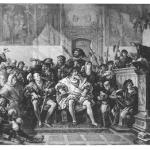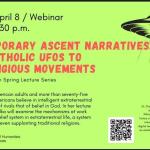Vatican City, Feb 15, 2016 / 05:20 pm (CNA/EWTN News).- Experts and friends of Pope St. John Paul II responded quickly to a BBC promotion of a documentary about his friendship with Polish-born female philosopher Anna-Teresa Tymieniecka – questioning some of the portrayals of their friendship and outright dismissing others. “John Paul II's friendship with her was neither secret nor extraordinary,” Poland's national library, which hosts Tymieniecka's letters from the Pope, said Feb. 15. “The statements made in the media have no basis in the content of the letters of John Paul II to Anna-Teresa Tymieniecka which are in the National Library of Poland’s archives,” the library said, according to Agence France Presse. On Feb. 15 BBC News discussed letters and various meetings between the Pope and Tymieniecka, saying that the letters showed a close relationship. The BBC story said there is no suggestion the Pope “broke his vow of celibacy.” The news story preceded the Monday evening broadcast of a documentary on the British television station BBC One. Promotional material for the show depicts its subject as “the secret letters of John Paul II.” Greg Burke, vice-director of the Holy See Press Office, commented on the broadcast Feb. 15. “With regard to a documentary on the BBC, it comes as no great revelation that Pope John Paul II had deep friendships with a number of people, men and women alike,” he said. “No one will be shocked by that.” The report started internet rumors of an affair, but the late Pope’s long-time secretary, countered these. “Those who lived at John Paul II's side knows very well that there is no space for malicious conspiracy theories,” Cardinal Stanislaw Dziwisz said in a statement. “He was free and transparent, he lived with no complexes because he was a very pure man, as he respected every person in every life's situation. This is the only key of interpretation of his exemplary and holy life.” The friendship between St. John Paul II and Anna-Teresa Tymieniecka was well known within John Paul II’s inner circle and outside of it. George Weigel’s biography of John Paul II, “Witness to Hope,” recounts that Tymienecka began writing letters to the prelate before he was a Pope – when he was known as Karol Wojtyla. The letters discussed his philosophical thoughts after the publication of his book “The Acting Person.” Msgr. Pawel Ptasznik, a Polish priest in the Vatican Secretariat of State, was one of Pope John Paul II’s close collaborators for 10 years. He reflected on the correspondence between the Pope and. Tymienecka. “Even when the philosophical debate was concluded, she kept on writing to Cardinal Karol Wojtyla and then to Pope John Paul II. Since he was a very polite man, he used to respond to every letter of hers he received.” Gianfranco Svidercoschi, a veteran Vatican observer and a biographer of John Paul II, also commented on the story. “Mrs. Tymieniecka kept all the letters from the Pope, and also a copy of the letters she sent,” Svidercoschi said, according to quotes obtained by ACI Stampa. After John Paul II's death, “she tried to sell her exchange of letters with the late Pope, and in the end the Polish National Library bought them all. However, the letters are not available for reading.” In his view, this the reason why BBC can claim that these are “secret letters.” Svidercoschi maintained that John Paul II had friendly relations with many people, including a long friendship with Wanda Poltawska, a Polish doctor, writer and World War II concentration camp survivor. “John Paul II loved to meet people. When he wanted to discuss something, he used to invite someone for a walk in the mountains. And he loved to go boating,” Svidercoschi said. The future Pope received the news he had been named a bishop during a camping trip with a circle of students. The friendship between John Paul II and Mrs. Tyminiecka did mean that Cardinal Wojtyla spent one vacation at Mr. and Mrs. Tyminiecka's house in Vermont. This was documented in the book “His Holiness,” by Marco Politi and Carl Bernstein. Read more




















